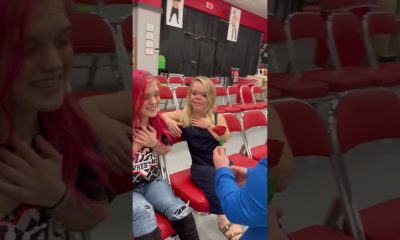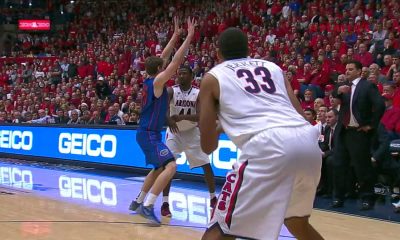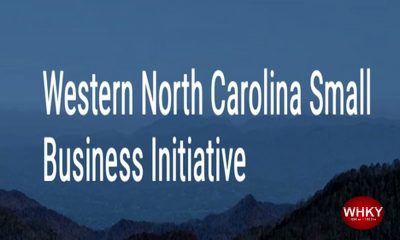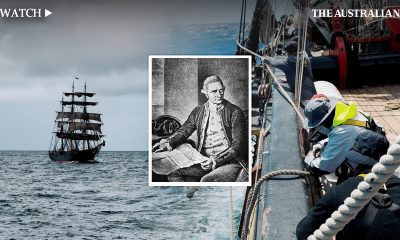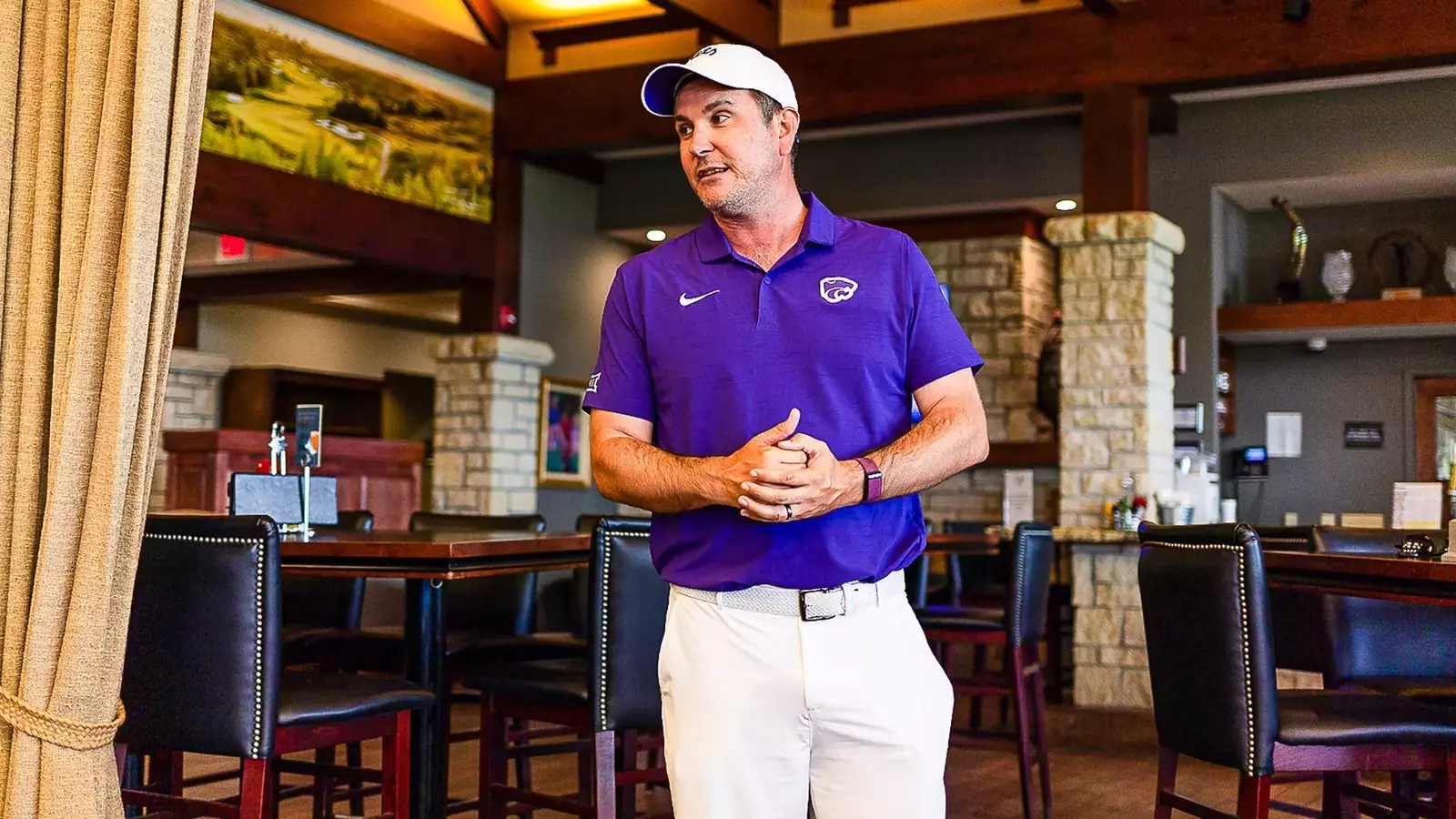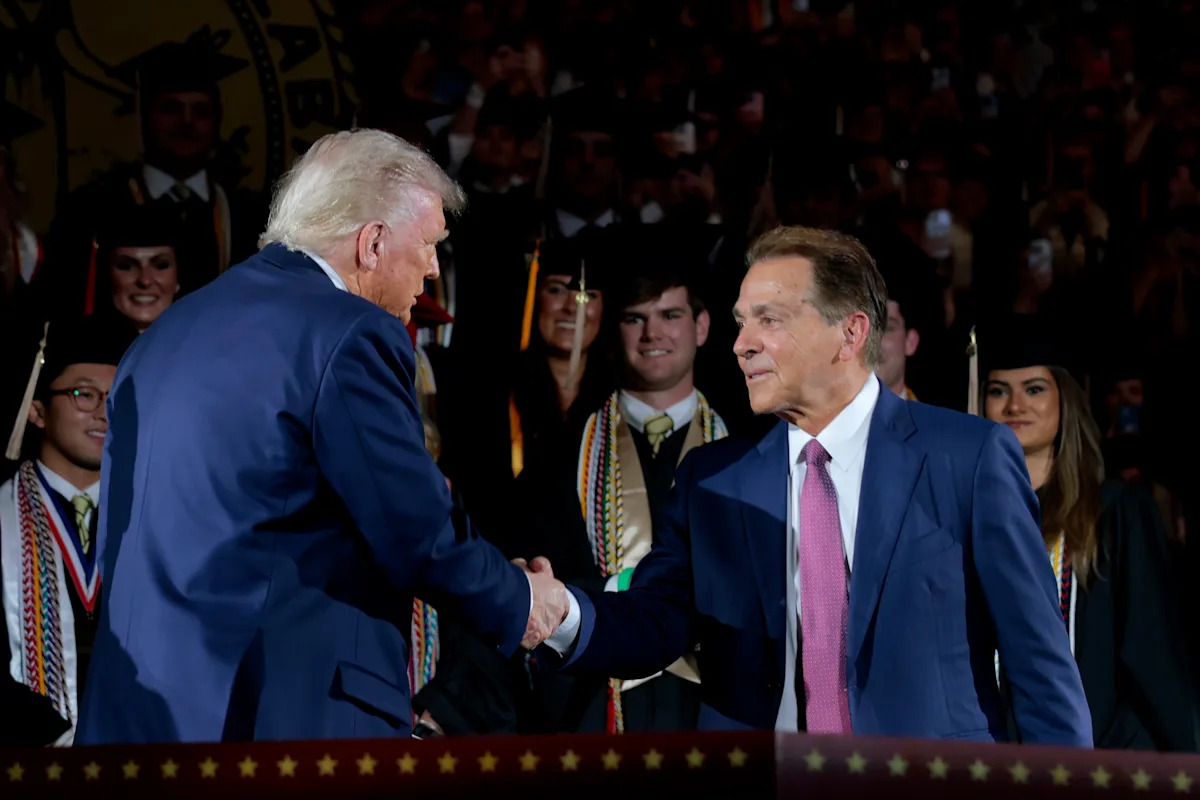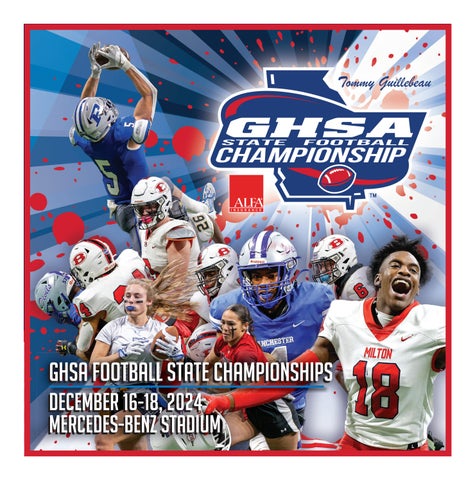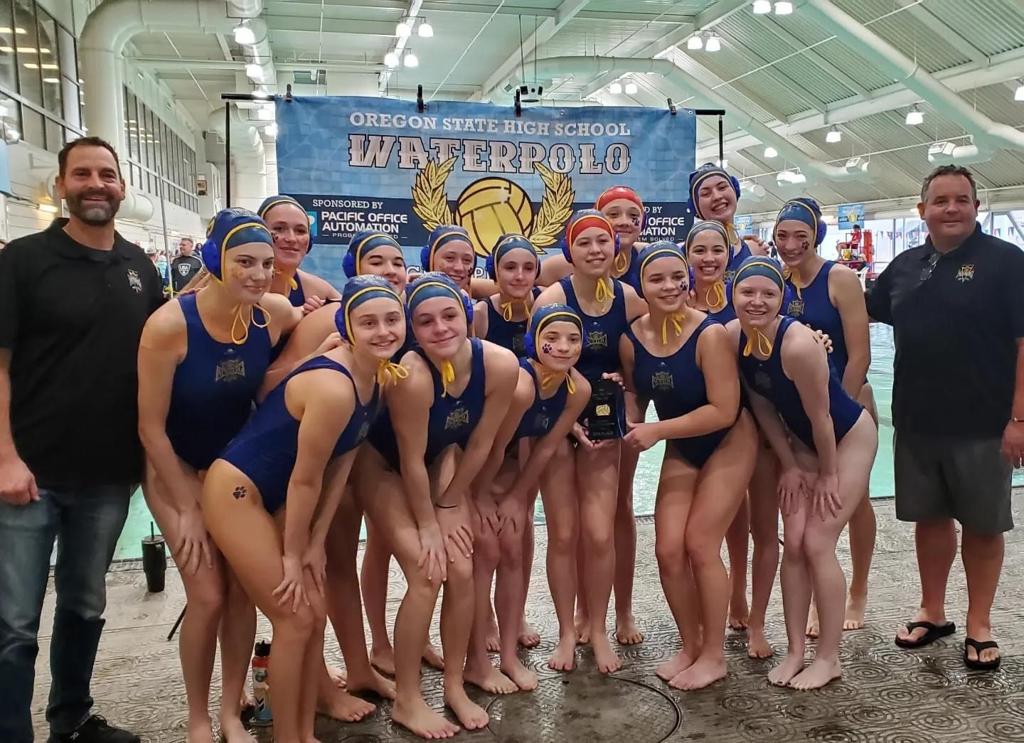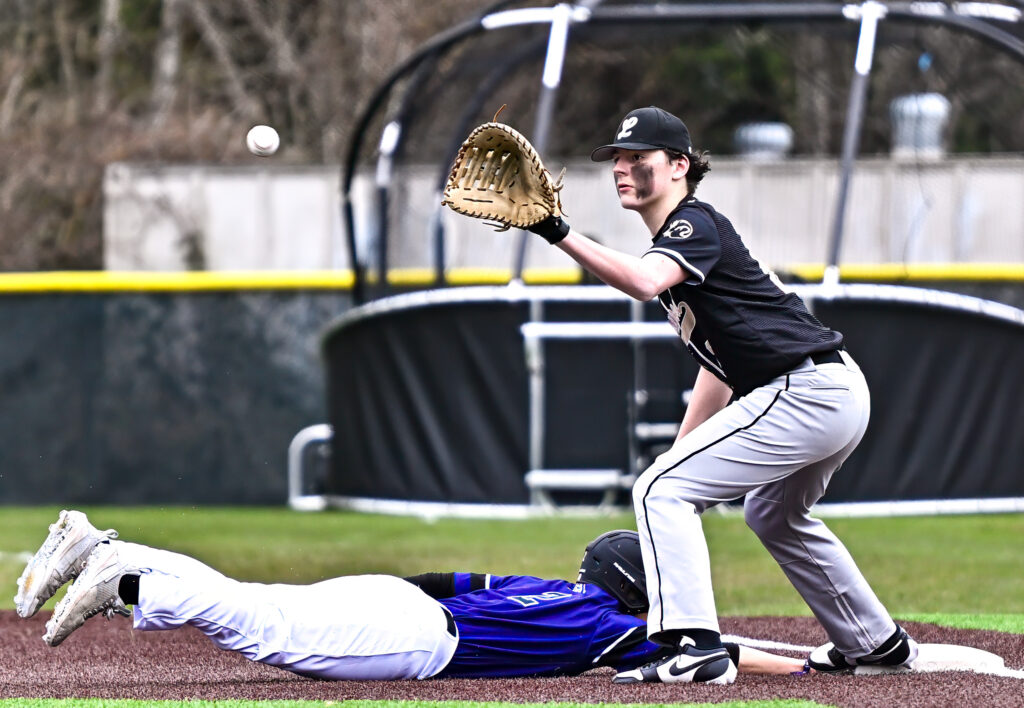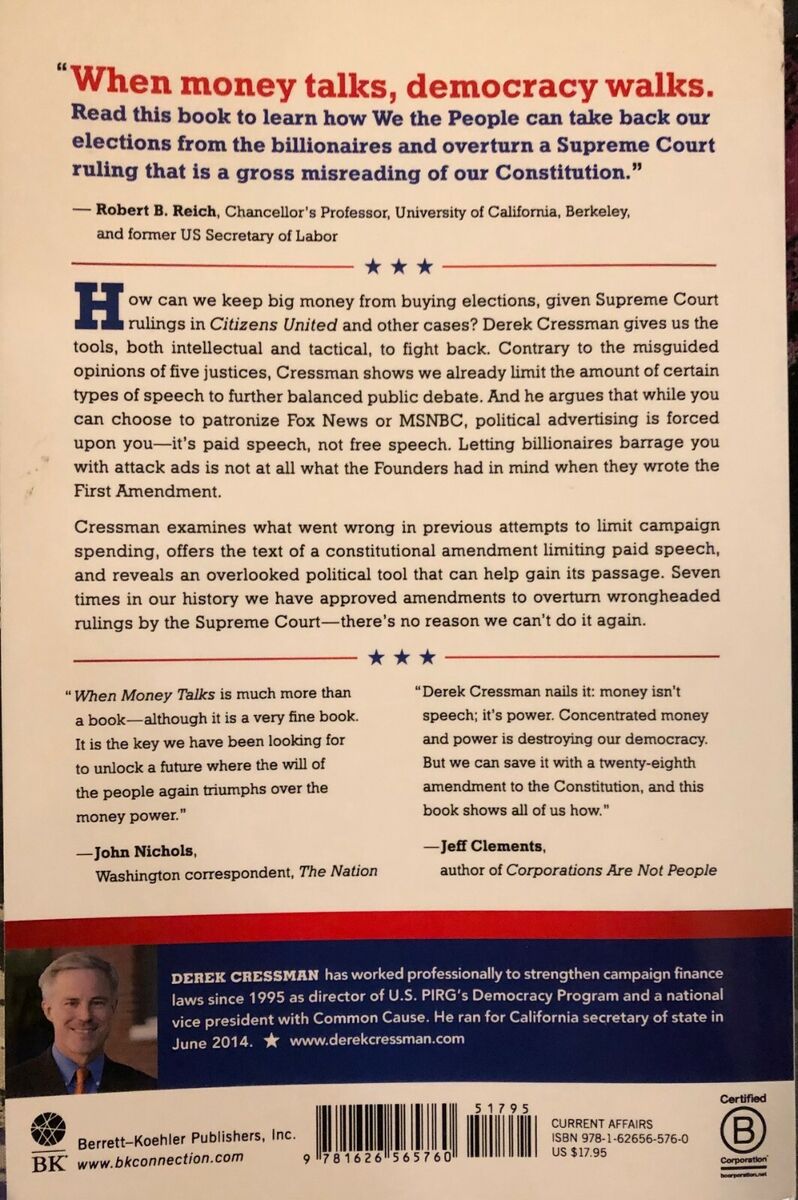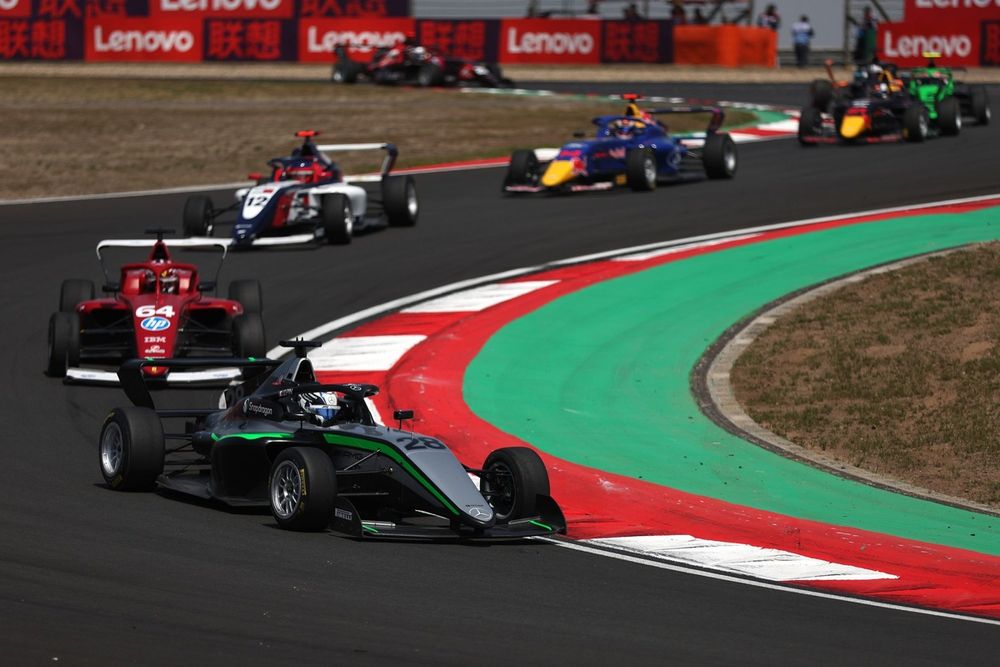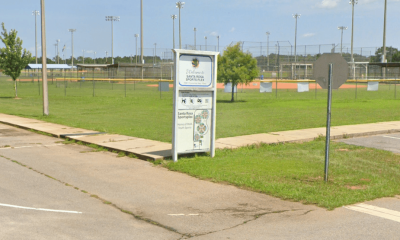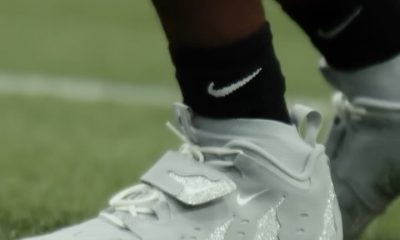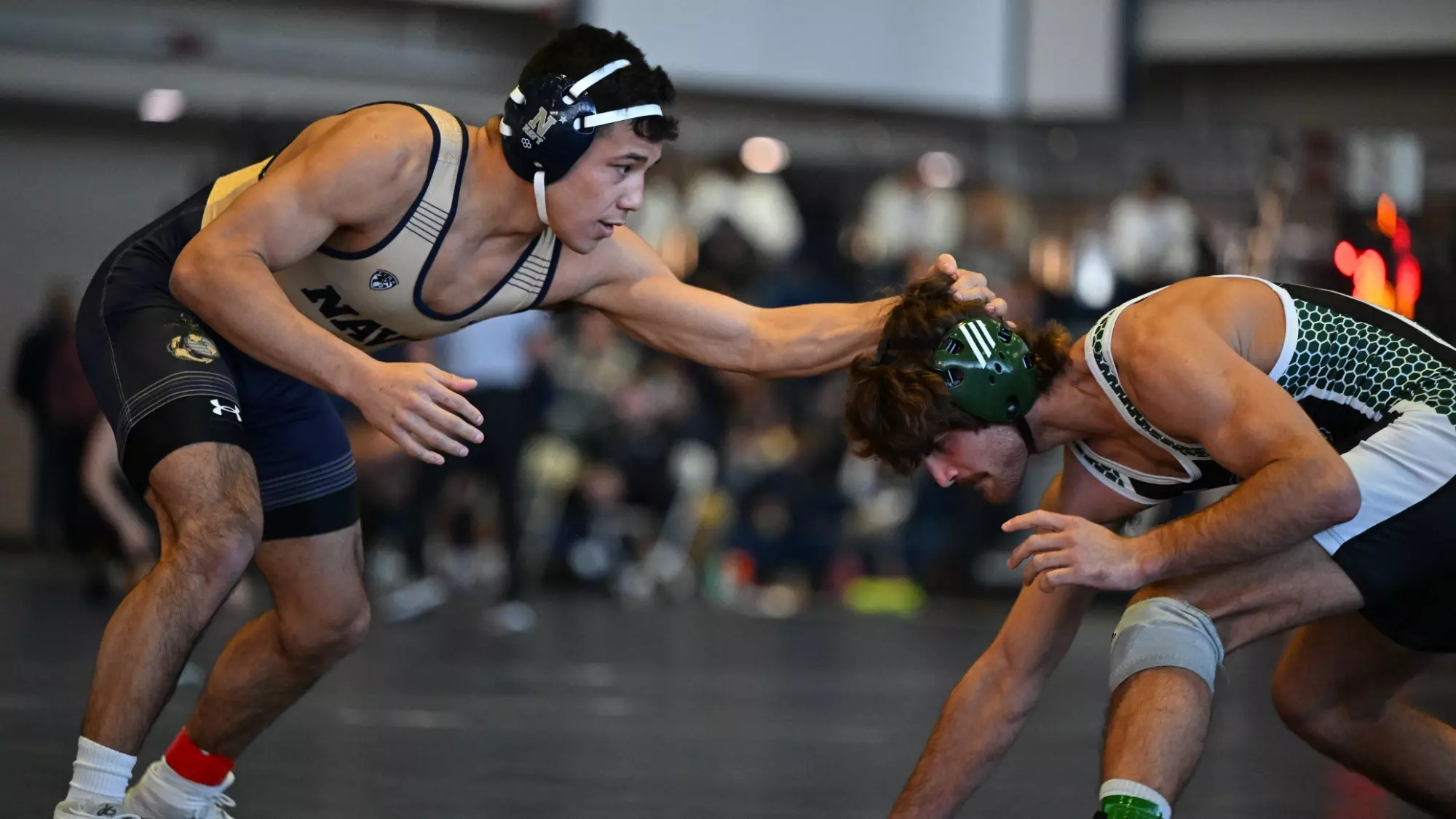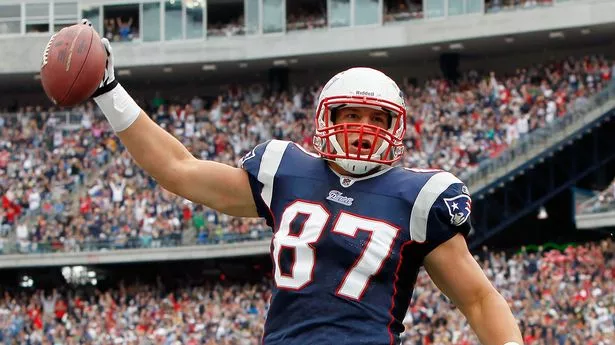By:
D. Scott Fritchen
The man in purple sits behind an L-shaped polished wood desk flush against the cream wall in his office at Colbert Hills Golf Course. To his left on the other side of the office is a steady, seemingly endless row of golf clubs. On one wall hangs five academic degrees or golf instruction certificates in pretty frames. But it’s the bright yellow commemorate golf flag encased in glass that first catches the eye. The flag is from the Augusta National Women’s Amateur and bears a black, cursive, handwritten inscription: “Stew, thank you for making this week possible!! Carla Bernat Escuder.”
It’s been 26 days since the 21-year-old Kansas State senior captured the most prestigious women’s amateur title in the world on perhaps the world’s most famous golf course while becoming the first golfer to record three rounds in the 60s in ANWA history. Bernat carded a 4-under 68 during the final round at Augusta National Golf Club, becoming the first woman from Spain to win the event.
It’s been 14 days since another K-State senior, Sophie Bert, of Belgium, fired a final-round 5-under par 66, rising 13 spots up the leaderboard to capture the Wildcats’ first-ever individual conference championship title at the 2025 Big 12 Championship at Houston Oaks Golf Club in Hockley, Texas. Bert’s 54-hole score of 2-under par 211 made her the only player to finish under par and her final-round total of 66 was the best ever by a K-State player in a conference championship.

It’s been a dizzying past month for the 39-year-old man in purple, second-year K-State head coach Stew Burke, who occupies his office seven hours after arriving in Manhattan at 2:40 a.m., navigating the severe thunderstorms that shook the team van as it crept along the Flint Hills hours after several Wildcats competed in the U.S. Women’s Open qualifier at St. Clair Country Club in Bellville, Illinois.
“Torrential rain heading back to Manhattan,” Burke says. “Today, I’m going to eat lunch with my mom and dad. They flew in from Scotland and have been here the last month. After lunch, I’m going to pick up my 4-year-old so she can go to the airport with grandma and grandpa and wave them off.
“The last month? Pretty amazing. It’s the way it’s supposed to be. It’s what I want K-State to be. Currently, it is.”
At 5:50 a.m. Saturday, the K-State women’s golf team embarks upon a new journey.
K-State will fly from Manhattan Regional Airport to Lexington, Kentucky. Following one the best regular seasons in program history, K-State earned a postseason bid for the first time since 2017 as the Wildcats were selected as the No. 5 seed in the 2025 NCAA Lexington Regional. It’s the latest high-water mark for a fast-rising women’s golf program — one determined to bust through the door reserved for blue bloods and take a seat at the table.
“Jim Colbert told me the story about Bill Snyder when he was hired and how he told Coach Snyder that it couldn’t be done,” Burke says. “When Jim Colbert called me during the interview process, I said, ‘It can be done. I promise you, it can be done!'”

Burke, the 2022 American Athletic Conference Coach of the Year at Tulane and former K-State assistant coach, was named the Wildcats’ head coach on June 30, 2023, after four seasons leading the Green Wave. In addition to spending parts of three seasons as an assistant coach at K-State, he also served as associate head coach for parts of three seasons at USC.
Last season, Burke and assistant coach Rinko Mitsunaga guided K-State to a school-record 290.25 scoring average (it topped the previous team scoring average by over six shots per round), one tournament victory (its first tournament victory away from Manhattan since 2017) and three other top-five finishes, and a third-place finish at the 2024 Big 12 Championship (its highest finish in a conference championship in school history).
Last season, K-State was also the first team left out of the 2024 NCAA Regionals.
This season, K-State re-established itself with a school-record 287.66 scoring average (nearly three shots better than in 2024) and has a school record-tying two victories and six top-three finishes. This season has also featured five of the top seven team rounds in school history.
A dose of national respect arrived on the GOLF Channel shortly after K-State’s regional selection on April 23. Front and center during the afternoon selection show special, the man in purple planted a Powercat flag on TVs across America.
“At Kansas State, we’re a hard-working, blue-collar team, and we’re a team everybody can root for,” Burke said on the GOLF Channel. “Maybe we’re not one of the premier blue chippers in women’s college golf, but we’re going to do our best with grit and effort and compete right to the end.”

The NCAA Women’s Golf Regionals features six sites and 12 teams at each site. The top five teams from each regional site will advance to compete in the NCAA Championship on May 16-21 at Omni La Costa Resort & Spa in Carlsbad, California.
The top six overall seeds are all entrenched in the cool club among women’s golf programs: Stanford, South Carolina, Florida State, Arkansas, Oregon and Texas. The other teams among the top 18 seeds include Virginia, Ole Miss, LSU, Ohio State, Arizona State, Auburn, USC, TCU, Wake Forest, Arizona, Northwestern and North Carolina.
The Lexington Regional looks this way: 1) Florida State, 2) USC, 3) TCU, 4) Vanderbilt and 5) K-State.
“You’ve got to be a disruptor,” Burke says. “I’m sure there are people who don’t want us there. They’re like, ‘Damn.’ Well, we’re pushing our way in. We have to take a little bit of swagger into it. They’re not going to be scared of anybody. The Augusta National Women’s Amateur — our player won it. The conference championship — our player won it.
“There’s no reason to be scared of anybody.”

Burke is passionate, thoughtful and well educated by virtue of the three college degrees framed upon his office wall. He played collegiately at Lindenwood University in St. Charles, Missouri, and graduated with a degree in sports management in 2007. Then he earned a master’s degree in educational, school and counseling psychology with an emphasis in positive coaching from Missouri in 2019. Then he earned another master’s degree in sports studies at Tulane in 2021.
His competitive fire ignites without warning.
“I kind of had an idea in my head about our first season at K-State and it was very rankings based,” he says. “I like numbers. Personally, I wanted to break every single record here. I wanted to break all the records as quickly as possible. That was a huge motivator. I knew the scores. There was a process to making sure we did the little things right while we talked about big, lofty goals, and the girls bought in. They could see themselves there. That’s always a part of it.
“You have to help others to see themselves going where they want to go.”

It didn’t take long for Burke to decide where he wanted to go. He was born and raised in the tiny village Bridge of Weir in the west central Lowlands of Scotland. While the village’s traditional industries are cotton milling and leather tanning, Burke’s father was a precision engineer who manufactured springs for everything from fighter jets to cash registers, and his mother was a schoolteacher.
“Dad introduced me to golf when I was 4 as a way to tire me out,” Burke says. “He’d take me and hit balls in a field. It’s a very working-class sport in Scotland. Everybody plays — absolutely everybody. My junior golf course membership between age 10 and 15 was $50. Everybody I grew up with played golf. It’s like baseball in America. We’d go to the club for dinner, have a couple beers, and play a quick five or six holes.”
Burke tells of his high school physical education teacher who never turned professional but who made nine birdies in a row on a women’s European Tour event to set a Guiness World Record. The P.E. teacher’s brother-in-law went to college on a golf scholarship. That piqued the interest of Burke, who calls his decision to play college golf in the United States “a no-brainer.”
“Then you figure out in year two that you’re maybe not good enough to play at the next level,” he says. “That’s when the interest in teaching and coaching sparked for me.”
As for all his degrees?
“I kind of get a little bit bored,” he says, chuckling.

As for the toughest challenge breaking into coaching?
“The visa process and getting a coach to take a risk,” he says. “I got really lucky. I had helped some golfers who came to the states have a lot of success and started to make a name for myself. K-State head coach Kristi Knight asked me to be her assistant. I was going to a friend’s wedding in St. Louis. The timing was perfect. All the stars were aligned. I loved the opportunity to help something grow. We started that spring and got running.”
While at K-State as an assistant, Burke helped raise the Wildcats’ Golfstat ranking from No. 105 into the top 40 as they tallied three team victories and four individual crowns. K-State also posted its top two scoring average marks in school history at the time with Burke on staff in 2014-15 (297.30) and 2015-16 (297.31).

Burke left K-State in the spring of 2017 to serve as the assistant coach and later the associate head coach at USC, where he helped guide the Trojans to consecutive appearances in the NCAA Championship semifinals (2017 and 2018) and in the quarterfinals (2019). In 2018-19, USC was the No. 1-ranked team by both Golfstat and Golfweek and captured the 2019 Pac-12 Championship. He coached players that combined for 10 All-America accolades.
“Southern Cal is a tough place to be,” Burke says. “If you don’t win, it’s a failure. We won a conference championship and there were no rings. You only got a ring for nationals. That’s since changed. But that environment — everybody is all over the place. You didn’t get to meet very many other coaches every often. You were in a coaching suite and people went to their office and worked and left because they had an hour commute. But you got special things there, too. You were around world-class athletes and great coaches within the area, so you got to learn and pick their brain. You can really make out of it what you want. You can become a great coach, or you can be lazy.”
And Burke is not lazy.
When Knight retired, Burke immediately called K-State. He went through a formal interview process and waited.
“There was an awful 10-day wait because I was the first interview,” he said. “I knew I was the person for the job with how passionate I was about this place. It was my job. I loved the place. Everyone assumed I was getting the job. It was a great job. You’re mentally there, but you’re going to be devastated if you don’t get it.”
Burke was immediately impressed with K-State athletic director Gene Taylor.
“I knew I had to be well prepared, and he was going to ask the right questions,” Burke says. “I’d interviewed with other Power 4 schools, and those people didn’t know about golf, development, and goals for the program. Gene knew exactly what he was looking for in taking the program forward. It was great to talk with somebody who was speaking your language.”

Burke made meeting with the team his top priority. He was in Spain recruiting at the time and introduced himself to the Wildcats on Zoom. Then he flew to Dallas, Texas, to watch three Wildcats compete in a U.S. Open qualifier. He called the golfers and got to know them. He also phoned Mitsunaga, his assistant coach at Tulane. She was in. Eventually, Carla Bernat, who adores Rinko like a sister, entered the transfer portal and joined Burke and Mitsunaga in Manhattan.
“Carla sent me an e-mail: ‘Would you consider me for your roster?’ It was very professional,” Burke says. “I had to give her a hard time.”

Burke and Mitsunaga traveled to five different countries to assemble this 2024-25 K-State team. Bernat hails from Castellon, Spain, as does sophomore Julia Ballester Barrio; senior transfer Sophie Bert is from Deurle, Belgium; junior Noa van Beek is from Oene, Netherlands; sophomore Alenka Navarro is from Mexico City, Mexico; freshman Nanami Nakashima is from Kani, Japan; and freshman Natalia Fiel Ros is from Valencia, Spain.
“We had to reestablish the brand, which is what Kristi and I had done the first time around,” Burke says. “Kristi sent me to Europe my first year, and I stayed six weeks. I went to a tournament, flew back, and took a flight somewhere else. People would see me.
“They’d say, ‘Oh, it’s the man in purple.'”
It still happens to Burke, where he’ll be driving in a major city somewhere in the United States, wearing the Powercat, and he’ll pause and say to himself, “I get to do this! I don’t believe it!” Or he’ll be walking a golf course in a different country, his competitive juices on fire, much like they were when he got Nakashima over California, Clemson, Baylor and UCLA.

K-State women’s golf has its foot firmly in the door. The Wildcats are crashing the party. Burke offered a warning of sorts soon after appearing on the GOLF Channel.
“Blue-chip programs get so much coverage,” Burke says. “There are other programs that can beat these top schools. We want to make sure we’re getting our seat at the table.”
It’s been quite a journey from growing up hitting golf balls into a field in Scotland. And it’s been quite a year for the Wildcats.
The best still could be to come.
“I don’t want to say this is the best team we’ve ever had,” Burke says. “On paper, yeah… but if we don’t get to nationals, I’ll be disappointed.”
There will be a time at the NCAA Lexington Regional, where much like at the Augusta National Women’s Amateur, Burke pauses for a second and breathes in the moment. It could happen on day one. Or on day two. But the time will come when Burke fully digests the enormity of the quest. And the quests to come.
The man in purple is leading the way as the Wildcats navigate the greens and plant their proverbial flag at Keene Trace Golf Club in a NCAA Regional for the first time in eight years. And the man in purple appreciates the journey.
“I’ve learned you can achieve what you put your mind to,” Burke says. “You have to be relentless. I wanted to be here. Once I got here, I wanted to make it great.”
He pauses.
“Maybe we’re not great yet,” he says, “but we’re certainly on the pathway to it.”






